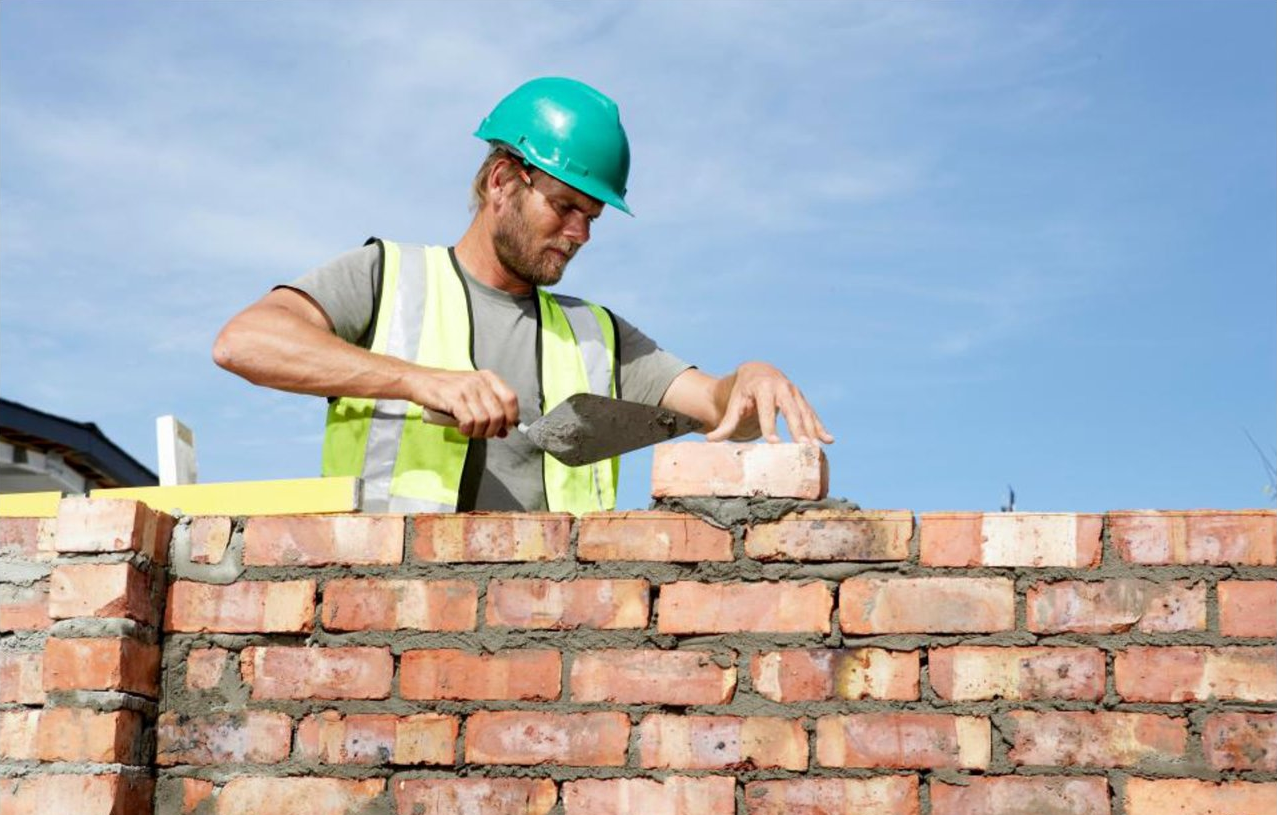
Bricklayers lay bricks, pre-cut stone, and concrete blocks with mortar. They construct, extend, and repair residential and commercial buildings, foundations, walls, chimneys, and aesthetic masonry work. Bricklaying gives you a true sense of achievement. When a project is over, you’ll be able to look at the results and say, “I constructed that.”
Responsibilities
Throughout your apprenticeship, you may help:
- measure work areas and set out the first rows of bricks or blocks
- mix mortar by hand or with a mechanical mixer
- use a trowel to lay bricks and mortar
- shape and trim bricks using hammers, chisels and power tools
- check that rows are straight using a spirit level, laser level or plumb line.
Salary
- An apprentice bricklayer salary can be in the region of £17,000 – £18,000
- Trained with experience bricklayers can earn in the region of £20,000 – £30,000
- Senior or master bricklayers can earn in the region of £30,000 – £40,000
Working hours
As an apprentice, you will be fully employed by your company and expected to work around 42 to 44 hours a week. Your time will be split between on-the-job experience and a college or training provider.
Working environment
You could work on a construction site.
Your working environment may be physically demanding, outdoors in all weathers, at height and you’ll travel often.
You may need to wear protective clothing.
Qualifications
Qualifications you can achieve as an apprentice bricklayer include:
- Level 2 Bricklayer – Entry requirements for this level include some GCSEs, usually including English and maths, or equivalent, for an intermediate apprenticeship. This qualification will take 30 months to complete.
Skills
On a bricklaying apprenticeship, you’ll learn:
- knowledge of building and construction
- to be thorough and pay attention to detail
- the ability to work well with others
- to be flexible and open to change
- patience and the ability to remain calm in stressful situations
- the ability to work well with your hands
- physical skills like strength, balance and coordination
- the ability to organise your time and workload
- to be able to carry out basic tasks on a computer or hand-held device.
Career path and progression
You could specialise in a particular type of bricklaying like heritage work or stonemasonry.
You could become self-employed and set up your own business.
With experience, you could become a construction site supervisor, or move into related areas like estimating, training or teaching apprentices or students in a further education college.
